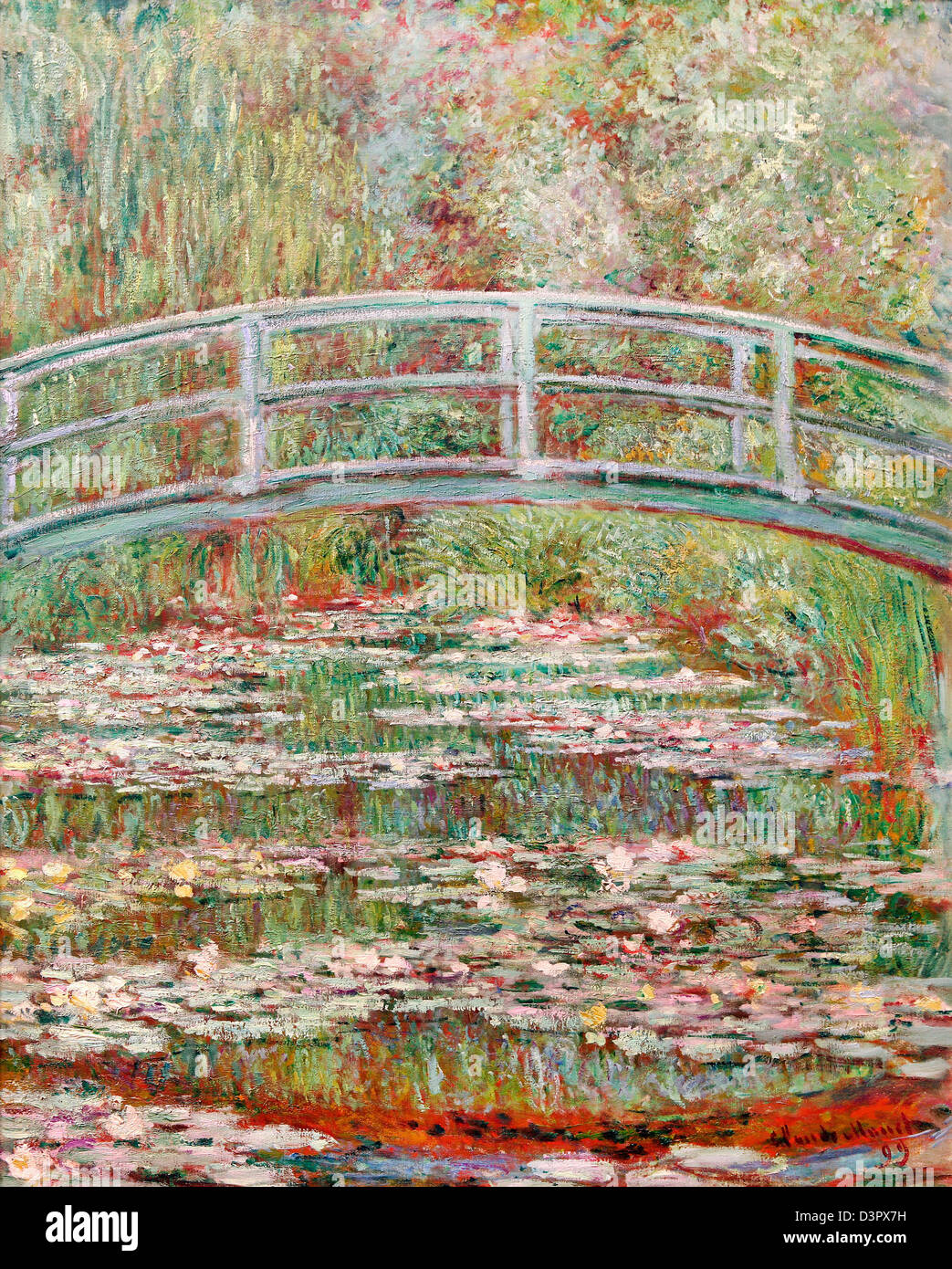
Claude Bridge over a Pond of Water Lilies, 1899, Metropolitan Museum of Art. Oil on
Garden at Sainte-Adresse. Bridge over a Pond of Water Lilies is an 1899 work by the French impressionist, Claude Monet. Monet painted the work using oil on canvas. The painting measures 36.5 by 29 inches. The painting is in the Metropolitan Museum of Art in New York. It was bequeathed to the Metropolitan Museum as part of the Havemeyer in 1929.
.jpg)
The Waterlily Pond with the Japanese Bridge by Claude
Claude Monet's The Japanese Bridge, which sits over a pond of water lilies, shares the tranquility of a man-made garden with its viewer. The painting serves as a glimpse into the brief moment.
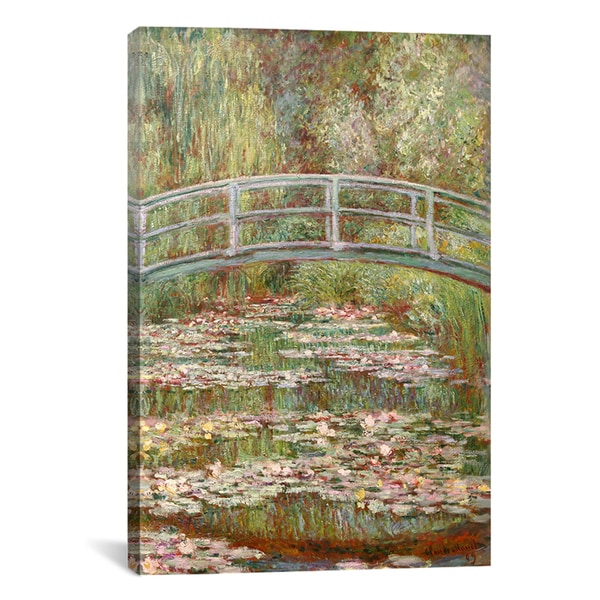
iCanvas Claude 'Bridge over a Pond of Water Lilies 1899' Canvas Art Print Free Shipping
The Japanese Footbridge is an oil-on-canvas painting by Claude Monet of the Japanese-style footbridge that was the focal point of his garden at Giverny, France. The structure was one of his favorite subjects, and he painted it over and over again, catching it in different moods and lights. This piece was probably painted between 1920 and 1922 and demonstrates how cataracts distorted Monet's.

The Japanese Bridge (The WaterLily Pond, Symphony in Rose) Claude
Analysis of The Water Lily Pond: Green Harmony. Claude Monet was the driving force behind the radical group of modern artists who became known as the 'Impressionists'. Influenced by Eugene Boudin (1824-98) and Johan Barthold Jongkind (1819-1891), Monet himself came to specialize in plein-air painting, in order to capture the momentary effects.

Bridge over a Pond of Water Lilies by Claude Art, Water lilies, Claude
Claude Monet in Giverny, 1905; Jacques Ernest Bulloz, Public domain, via Wikimedia Commons Monet's Japanese Bridge in Context. Below, we will discuss one of Monet's iconic oil paintings, The Japanese Footbridge (1899) in addition to many other iterations of the same structure.First, we will provide a contextual analysis, going over some of the social, historical, and cultural factors that.
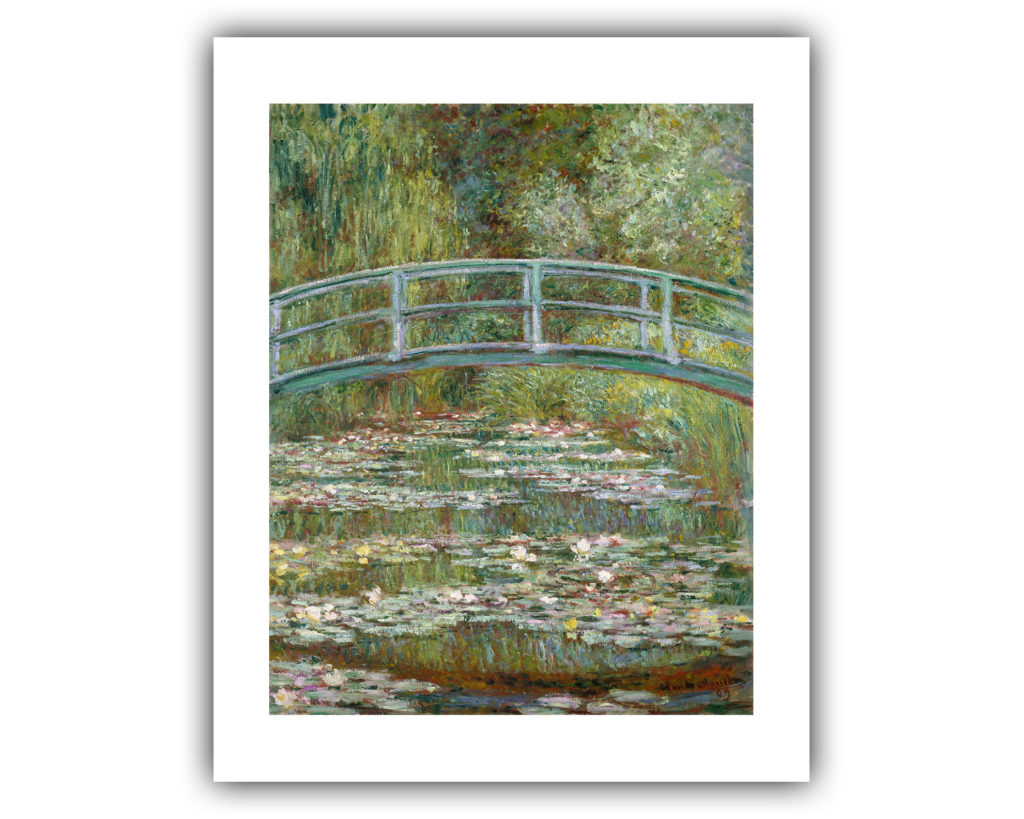
Claude "Bridge over a Pond of Water Lilies" (1899) The Ibis
Monet worked on a continuous series of water lily paintings from the late 1890s to 1910. About three hundred of his paintings are of his floral and water gardens. Ever self-critical, he was known to slash his paintings with a knife when he feared he had overworked them. Only four water lily paintings from 1904 survived his rampages—this.

Claude Bridge over a Pond of Water Lilies Poster Claude paintings,
Bridge over a Pond of Water Lilies, 1899. Claude Monet. Oil on canvas. H. O. Havemeyer Collection, Bequest of Mrs. H. O. Havemeyer, 1929. In 1893, Monet, a passionate horticulturist, purchased land with a pond near his property in Giverny, intending to build something "for the pleasure of the eye and also for motifs to paint."

Bridge over a Pond of Water Lilies Claude National gallery of art, Claude art
The Water Lily Pond, 1899 by Claude Monet.. Photo of Monet on the Water Lily Pond Japanese Bridge. When Monet exhibited these paintings at Durand - Ruel's gallery in 1890, a number of critics mentioned his debt to Japanese art. More telling, the impenetrable green enclosure - heightened in the National Gallery painting by the placement of.
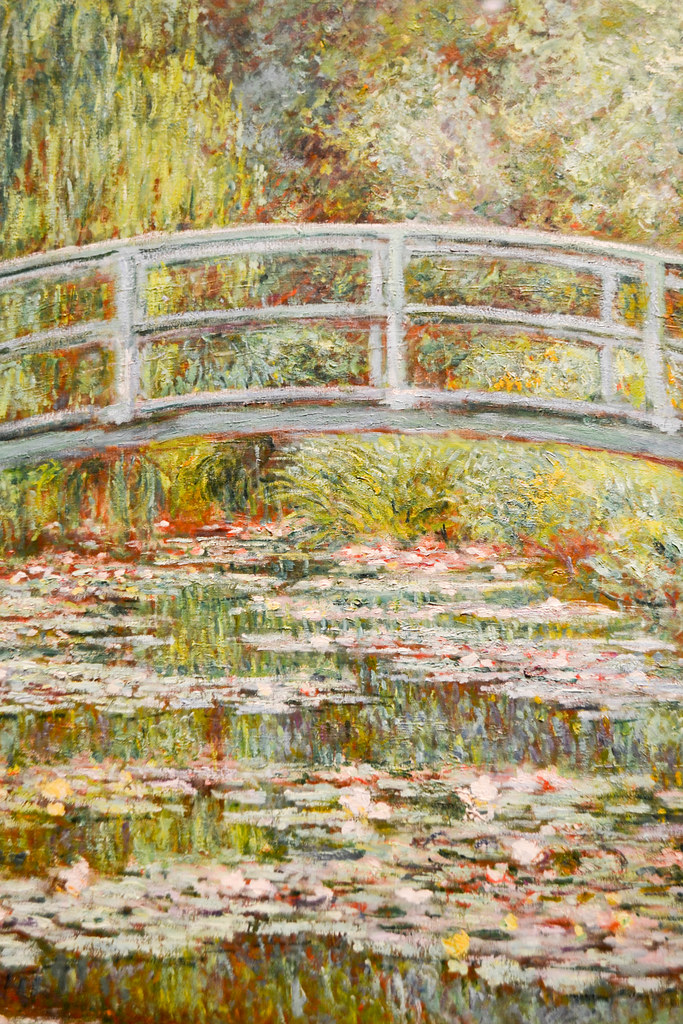
Claude Bridge over a Pond of Water Lilies, 1899 Flickr
Claude Monet was a key figure in the Impressionist movement that transformed French painting in the second half of the nineteenth century. Throughout his long career, Monet consistently depicted the landscape and leisure activities of Paris and its environs as well as the Normandy coast. He led the way to twentieth-century modernism by developing a unique style that strove to capture on canvas.
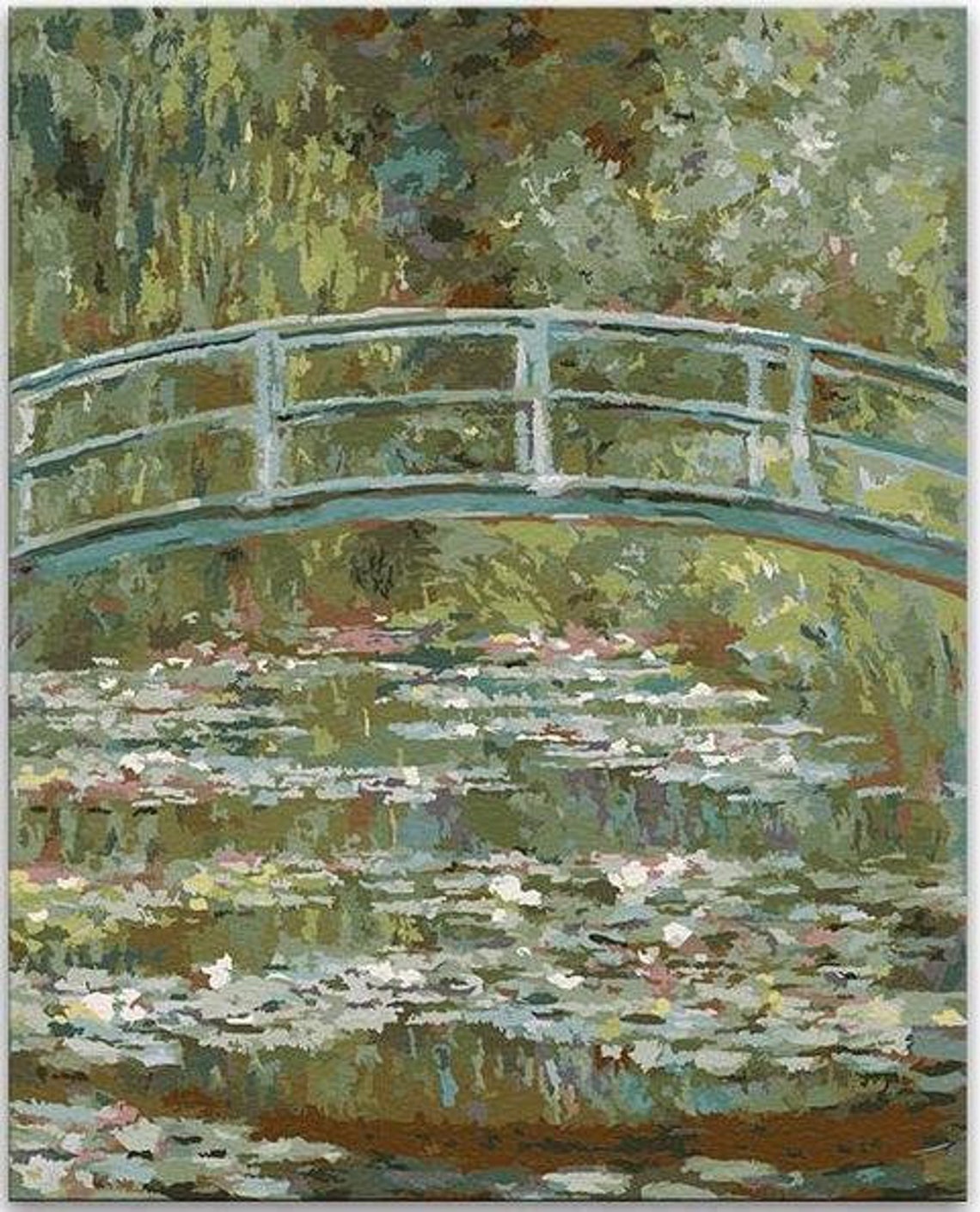
Bridge Over a Pond of Water Lilies Claude USA Etsy
Claude Monet, The Water Lilies - The Clouds, 1920-1926, Musée de l'Orangerie, Paris Claude Monet, The Water Lilies - Setting Sun, 1920-1926, Musée de l'Orangerie, Paris Claude Monet, Reflections of Clouds on the Water-Lily Pond, c. 1920, 200 × 1276 cm (78.74 × 502.36 in), oil on canvas, Museum of Modern Art, New York City. Water Lilies (French: Nymphéas) is a series of.
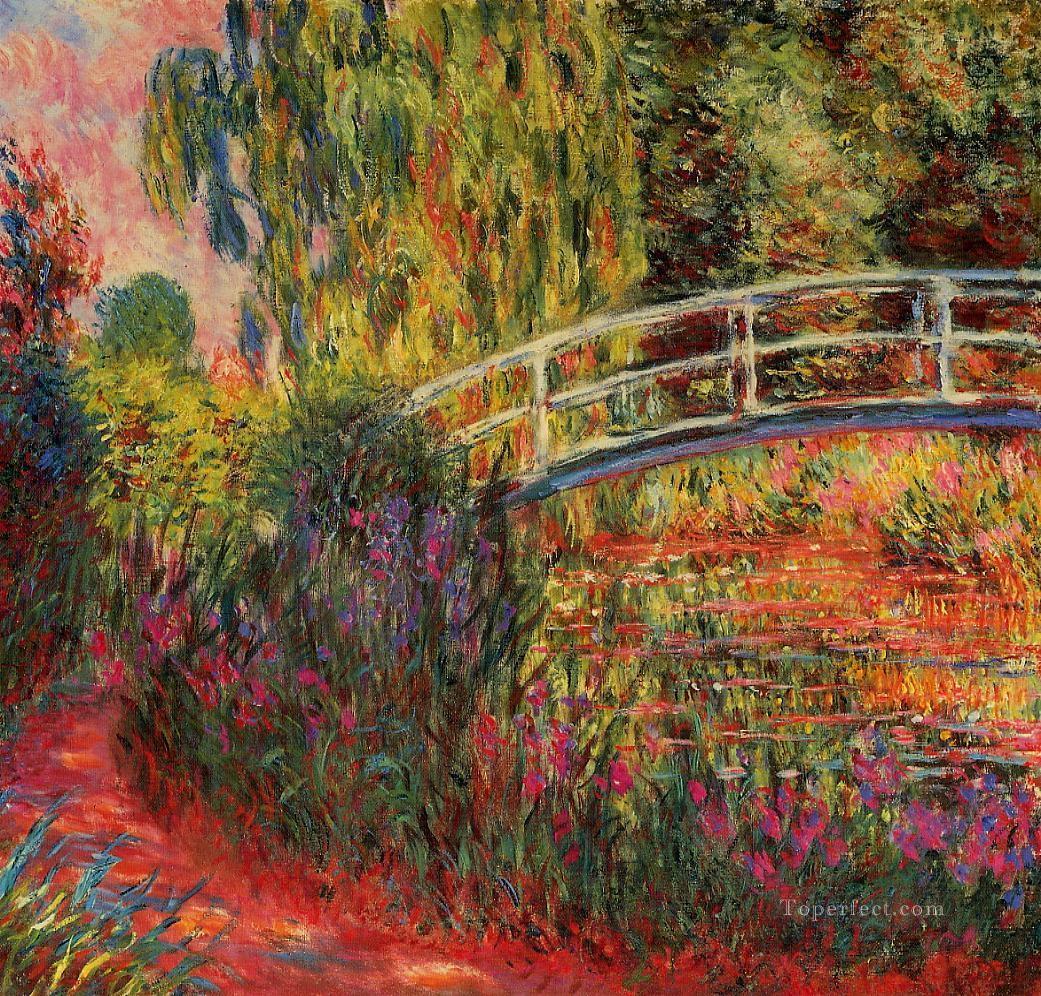
The Water Lily Pond aka Japanese Bridge 1900 Claude Impressionism Flowers Painting in Oil
Monet produced ten canvases of the pond in his water garden, which he created with an arched bridge in the Japanese style. Bridge Over a Pond of Water Lilies; Déjeuner sur l'herbe; Houses of Parliament;. Claude Monet Page Menu. Selected Page. Bridge Over a Pond of Water Lilies. Artist. Claude Monet. Paintings. Bathers at La Grenouillère.

Claude "Water Lily Pond & Japanese Bridge" 1899 FRAMED ART marlinartauction
Monet erected a Japanese bridge over the western end of the pond that took its inspiration from the bridges in ukiyo-e Japanese prints. He was a keen collector of these prints and he owned a copy of Hiroshige's Wisteria at Kameido Tenjin Shrine (1856), one of the many prints that features a curved bridge.
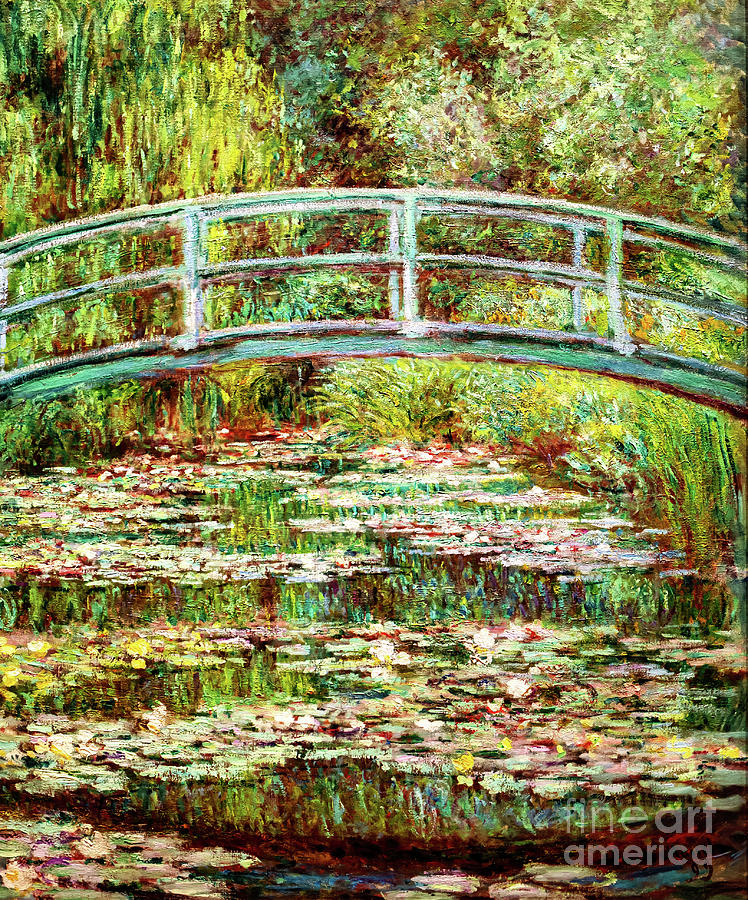
Bridge over a Pond of Water Lilies by Painting by Claude Pixels
Claude Monet, "Water-Lily Pond, Symphony in Green," 1899, oil on canvas, 35 ¼ x 36 ½ in. (Musée d'Orsay, Paris). Monet returned in a concerted way to depict the bridge over his pond in eighteen canvases of 1899-1900 and exhibited twelve of them all with similar titles at Durand-Ruel's gallery in Paris in 1900. He had spent the warm.
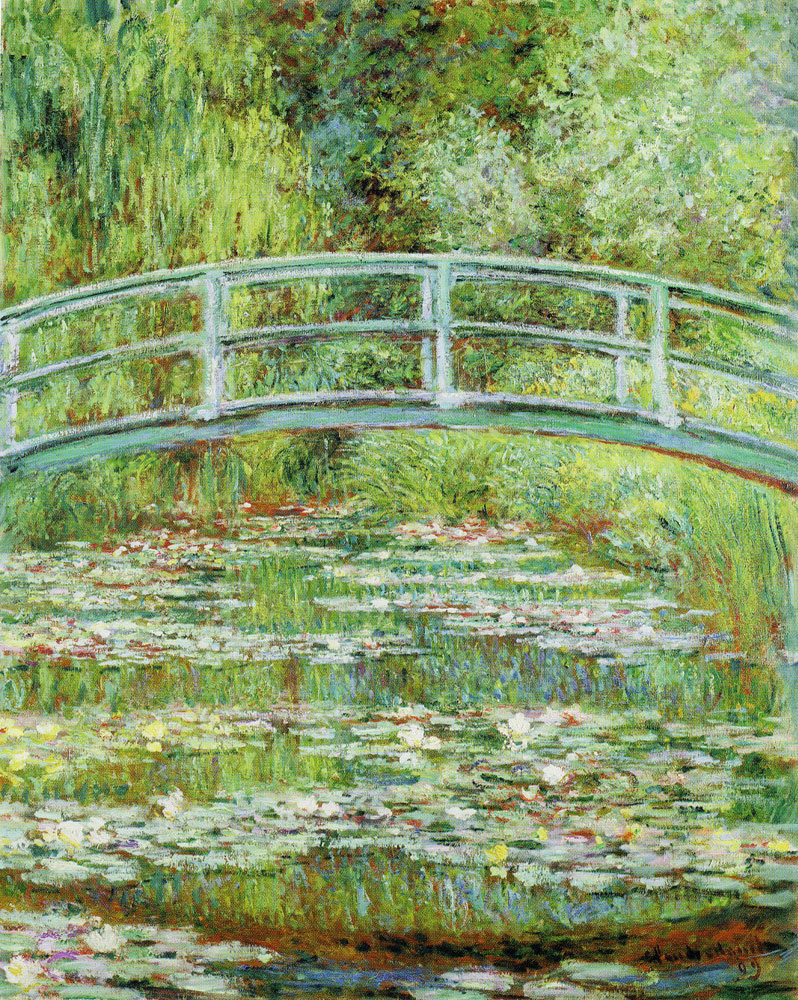
Claude Bridge over a Pond of Water Lilies
Claude Monet: Bridge over a Pond of Water Lilies. New York City}} {{en|Bridge Over a Pond of Water Lilies, Claude Monet 1899, Metropolitan Museum of Art, New York City}} |Source=Own work |Date: You cannot overwrite this file. File usage on Commons. The following 10 pages use this file: Claude Monet catalogue raisonné, 1996 Wildenstein.
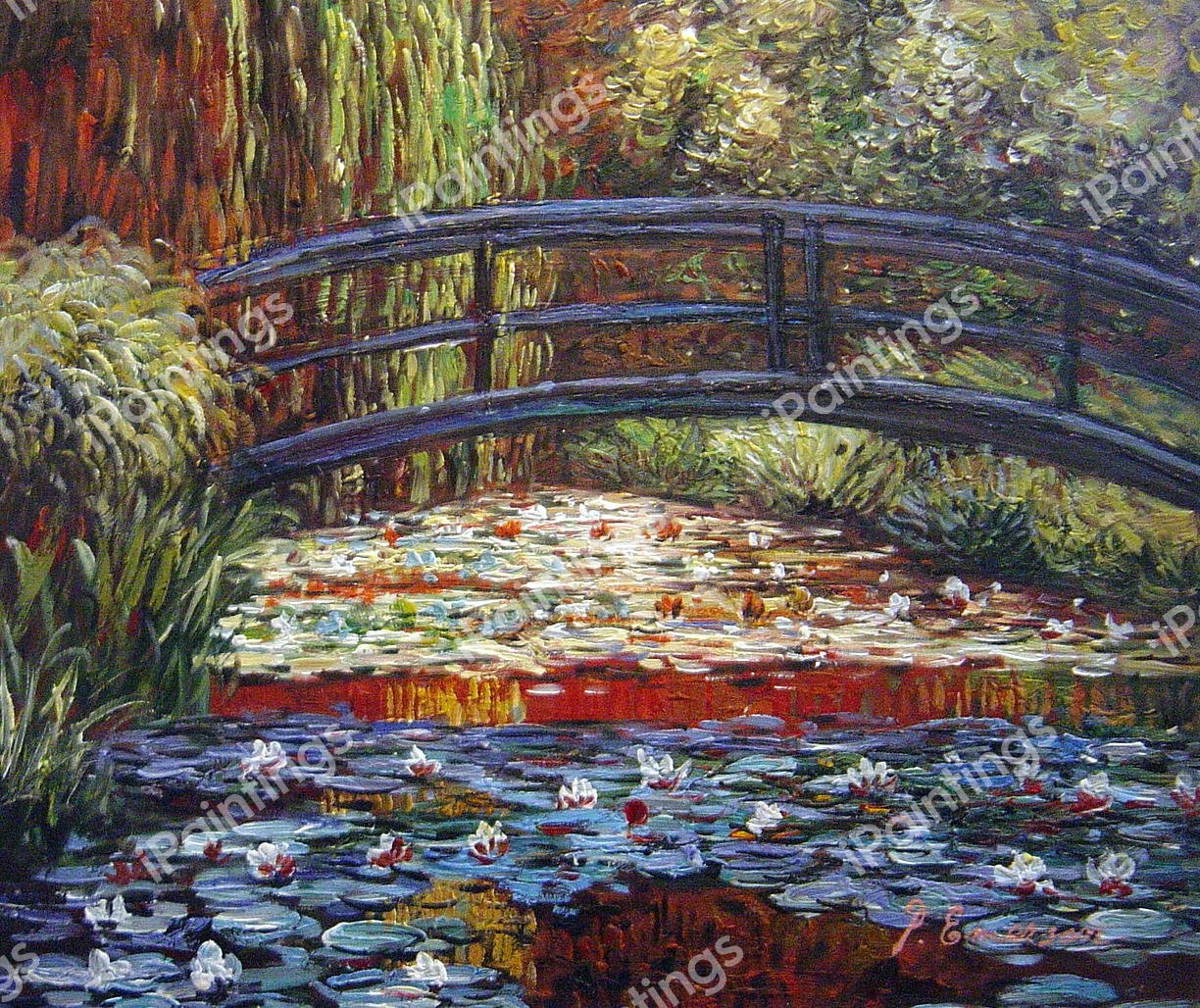
The Bridge Over The Colorful WaterLily Pond Painting by Claude Reproduction
Claude Monet's "Bridge over a Pond of Water Lilies" painting is an iconic work of Impressionist art. The painting was created in 1899 and measures 3′ 0″ x 2′ 5″. It is an oil painting on canvas that is part of Monet's famous series, Water Lilies. This particular piece features the bridge spanning the Giverny water lily pond full.

5 Claude Water Lilies Bridge bridge over a pond of water lilies 1899
by Claude Monet. In 1893, Monet, a passionate horticulturist, purchased land with a pond near his property in Giverny, intending to build something "for the pleasure of the eye and also for motifs to paint." The result was his water-lily garden. In 1899, he began a series of eighteen views of the wooden footbridge over the pond, completing.
- 33 Railway St Rooty Hill Nsw 2766
- Rockwell Somebodys Watching Me Lyrics
- Captain Cook S Landing Place Photos
- Is Tom Trbojevic Playing Tonight
- Lolly From Orange Is The New Black
- Minjee Lee Us Open 2023
- St Andrews Medical Centre Midland
- Wind Under My Wings Meaning
- Who Did Australia Fight In Ww1
- Ray White Real Estate Redcliffe
